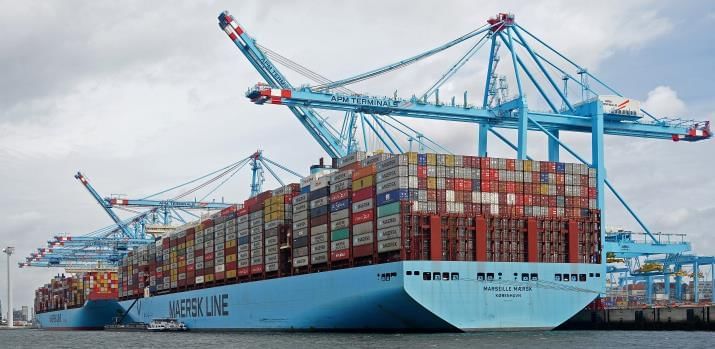Year 6 Exam > Year 6 Notes > Geography for Year 6 > Explore Trade
Explore Trade | Geography for Year 6 PDF Download
| Table of contents |

|
| What is trade? |

|
| Export and import |

|
| Important trade relationships |

|
| What happens at ports? |

|
What is trade?
Trade refers to the buying and selling of goods and services. It is a vital way for countries to generate wealth and has been practiced globally for centuries. Nowadays, goods are transported worldwide using container ships and airplanes.
 Container ships are used to transport goods all around the world.
Container ships are used to transport goods all around the world.
Export and import
- In the UK, individuals and businesses can sell products to other countries, a process known as exporting. Countries may purchase goods from abroad for several reasons: they may lack the ability to produce those goods, the goods might be more affordable, or they could be of superior quality.
- Importing refers to a country purchasing goods from another nation. For instance, the UK imports fruits like bananas and oranges because they are difficult to grow locally.
- Additionally, countries sometimes require expertise from abroad, such as engineers, scientists, or teachers. These professionals provide their expertise globally, contributing to what is known as the service industry.
- Currently, the service industry is the UK’s primary economic sector. The UK imports more goods than it exports.
Important trade relationships
The UK's primary trading partners include the United States, Germany, and China.
Key UK exports include:
- Cars
- Medicines
- Aircraft parts
- Gold
- Financial services
Key UK imports include:
- Crude oil and gas from Norway, the USA, and the Middle East
- Clothing from China
- Computers from China
- Cars from Germany
- Fruit from Spain
- Fish from Iceland
What happens at ports?
Goods for trade are transported by road, sea, air, or river. A significant amount of trade involves moving goods across seas and oceans in large containers, which are loaded and unloaded at ports.
The document Explore Trade | Geography for Year 6 is a part of the Year 6 Course Geography for Year 6.
All you need of Year 6 at this link: Year 6
FAQs on Explore Trade - Geography for Year 6
| 1. What is trade and why is it important? |  |
Ans. Trade refers to the exchange of goods and services between individuals or countries. It is important because it allows nations to obtain resources and products they do not have, promotes economic growth, creates jobs, and fosters international relationships.
| 2. What are exports and imports? |  |
Ans. Exports are goods and services produced in one country and sold to another, while imports are goods and services bought by a country from abroad. The balance between exports and imports is crucial for a nation's economy, influencing its trade balance.
| 3. What are some important trade relationships around the world? |  |
Ans. Important trade relationships include those between major economies such as the United States and China, the European Union and the United States, and ASEAN countries. These relationships facilitate a large volume of trade, impacting global markets and economies.
| 4. What happens at ports during trade? |  |
Ans. At ports, goods are loaded and unloaded from ships, customs checks are performed, and containers are inspected. Ports serve as critical hubs for international trade, ensuring that products are efficiently transported between countries.
| 5. How do trade agreements impact international trade? |  |
Ans. Trade agreements are treaties between countries that outline the rules of trade between them. They can reduce tariffs, eliminate trade barriers, and promote smoother trade flows, which can enhance economic cooperation and increase market access for businesses.
Related Searches














